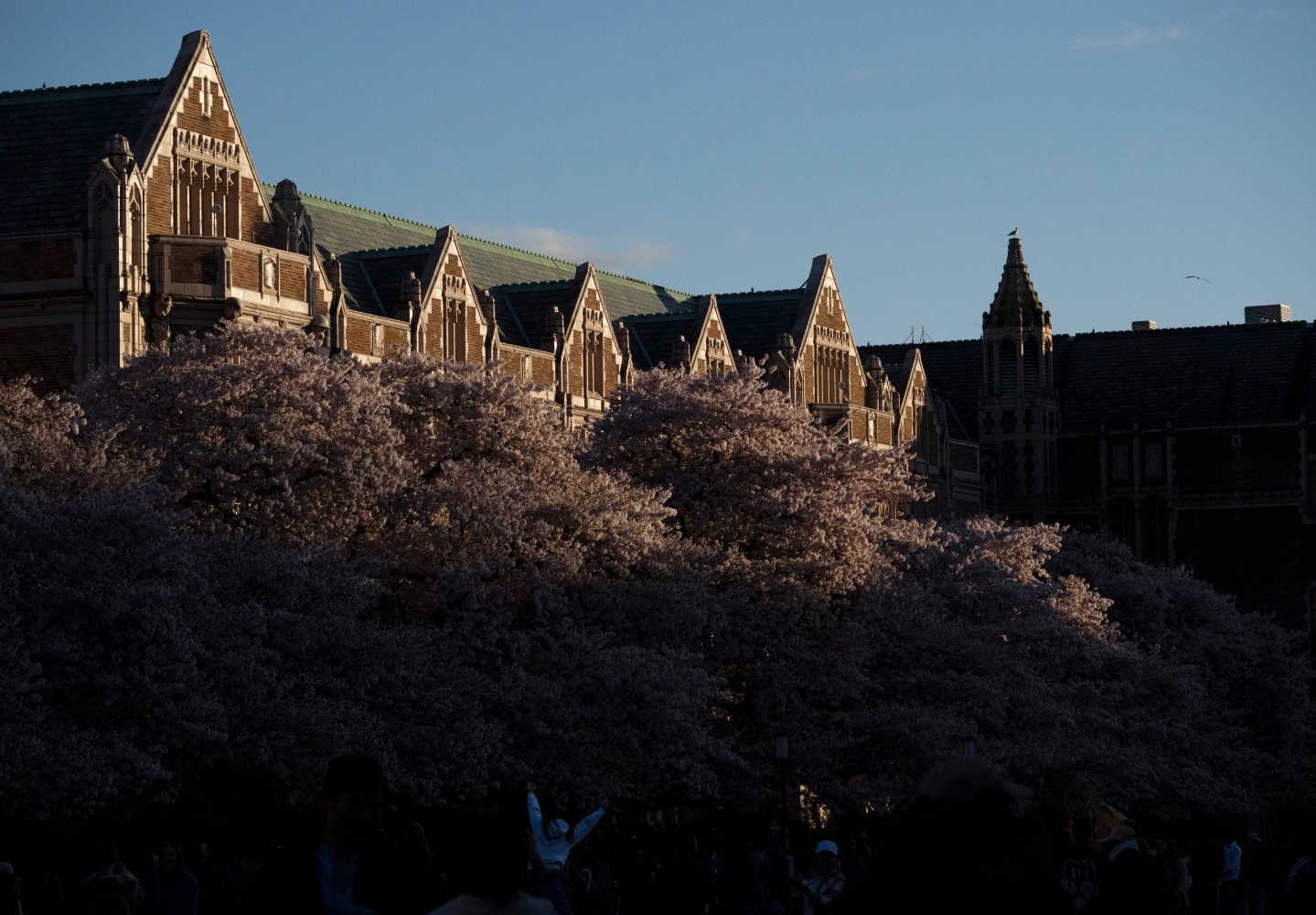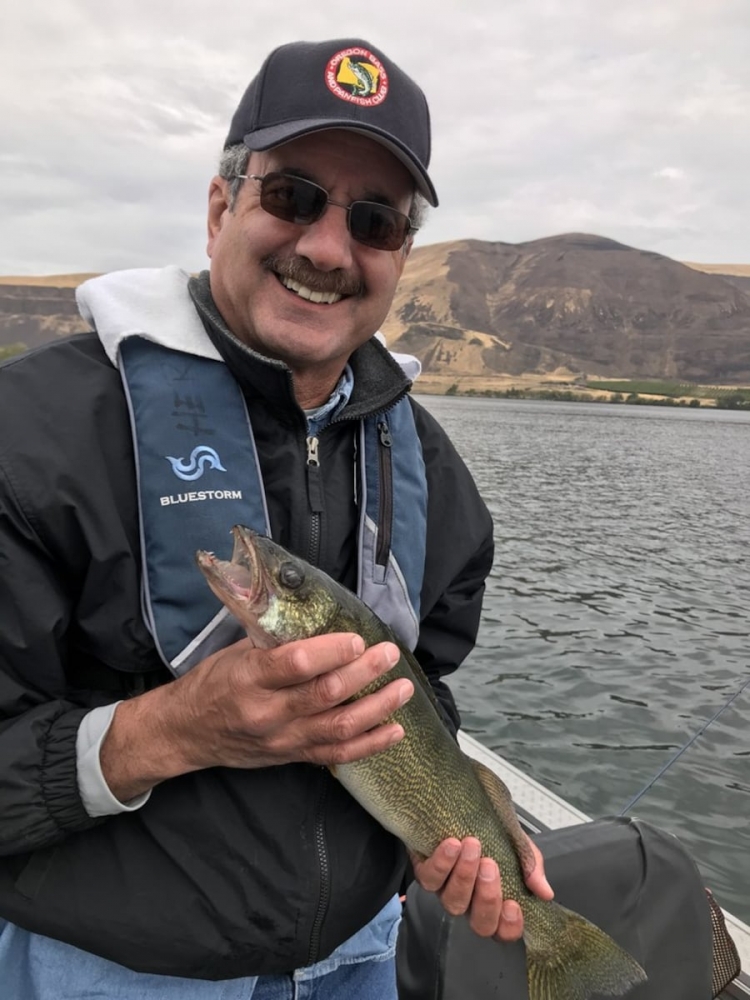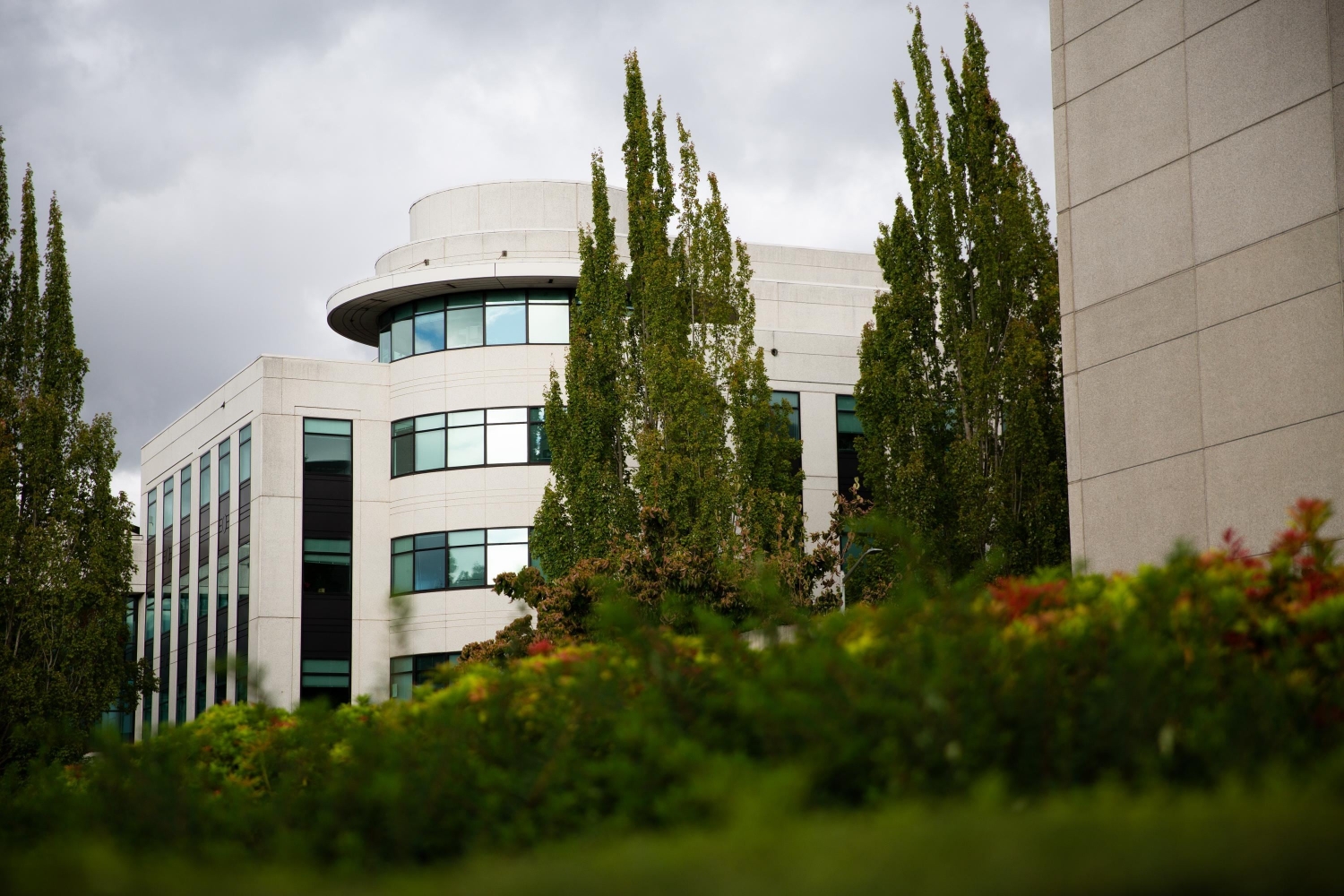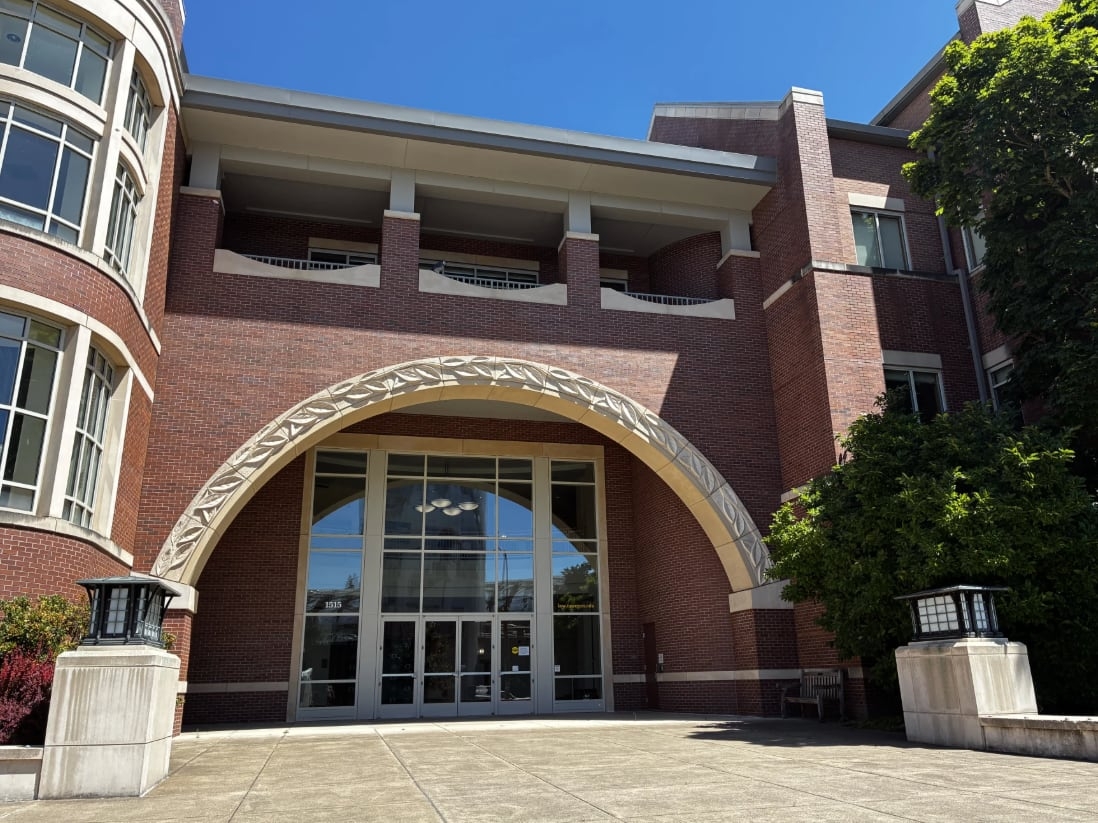

Published on: 07/19/2025
This news was posted by Oregon Today News
Description

Undocumented students and recent graduates in southeastern Washington are navigating uncertainty in the wake of changing immigration policy.
As part of the changes, the Trump administration rescinded a 2021 guidance for enforcement action at the start of this year. The guidance limited federal immigration operations near certain protected areas, including colleges and universities.
The move sent ripples through higher education campuses in the Northwest. In Washington state, the Higher Ed Immigration Portal estimated that in 2024 there were more than 12,000 undocumented students enrolled.
José and Lupe, both in their 20s, were college students when the federal government rescinded that guidance. They both graduated this spring. They have asked NWPB to withhold their real names, due to safety concerns.
Like other students around the state, José and Lupe are navigating the immigration policy changes to find the best way to achieve their dreams. At the same time, higher education institutions are providing information and resources to help people continue their education regardless of immigration status.
Both born in Mexico, José and Lupe came to the U.S. as children. They’ve grown up in Washington state.
“I moved here when I was three months old,” said Lupe. “My mom (undocumented) … she went through her own path, and then we both kind of just met together.”
“It has been a struggle, ’cause I have a single mother and she’s always working — warehouses, very seasonal work in agriculture, like apple seasons and then during the summer working cherries,” José said. “That’s been a big motivation for me. I am, like, a first generation.”
Neither had thought much about their immigration status before the changes.
“My status has ever been such a big thing, like, being undocumented. Throughout high school and elementary years, I didn’t really think much of it,” Lupe said.
Still, she said people’s comments have brought the matter to her attention. She said something changed when she was in seventh grade.
“I remember my teacher was like: ‘I don’t know why immigrants just can’t come here the legal way,’” Lupe said.
For her, it seems some people do not try to inform themselves about the immigration process or what is happening among the immigrant communities. She said this year has been tense, with more substantial immigration policy changes.
“It’s just, like that sense of fear. There’s a lot of hate and just a lack of empathy,” she said.
Barriers to documentation persist
Both José and Lupe have been working on moving forward with documentation.
Lupe, for instance, applied for Deferred Action for Childhood Arrivals, or DACA, but progress stalled on her application.
Having DACA would allow her to be considered lawfully present in the U.S., that means she could work in the country.
“I did my DACA, I got my fingerprints taken, I got my picture taken,” she said. “A lot of people say, ‘Oh, enter the legal way,’ but a judge in Texas paused that (DACA) for four years. No progress has been made,” she said.
DACA offers temporary protection from deportation and work authorization for eligible people who, like José and Lupe, were brought to the U.S. as children. Still, DACA does not confer lawful immigration status.
In January, the U.S. Court of Appeals for the 5th Circuit issued a decision regarding the DACA Final Rule. According to the U.S Citizenship and Immigration Services website, following that recent decision “USCIS will continue to accept and process DACA renewal requests and accompanying applications for employment authorization under the DACA regulations.”
It also mentioned that the agency will continue to accept initial requests but will not process those initial requests at this time.
“Now, it’s like a wait and see, like that kind of sense of anxiety. I don’t know if I can be able to pursue my career,” Lupe said.
Increasing anxiety
The feeling of uncertainty around immigration has not only affected José and Lupe. Other students around the Tri-Cities have also expressed concerns.
“We see fear among our students and anxiety. There are a lot of things we hear outside the institution that are affecting our students,” Stephanie Fuentes, a student advocacy specialist at Columbia Basin College in Pasco, said.
She has seen that students are more often walking in for help rather than scheduling appointments, like they have in the past.
Fuentes has also seen a decline in in-person attendance at events and groups where she offers information to students in non-traditional circumstances.
She said she used to have at least 30 attendees during events. Recently, she organized workshops and only 7-10 people attended. She also mentioned there is a club dedicated to connecting students and fostering a sense of belonging. The club had 25 students and now has just two left participating.
“I think they’re also trying to figure out their own life and trying to see if they’re OK,” Fuentes said. “It shows if students are scared, they’re not gonna wanna get involved, they’re not gonna wanna get engaged.”
She said that this is leading her to look for better strategies to communicate and to bring people to her events and resource fairs.
Community support and state protections
Despite the federal shifts, community outreach remains a priority at colleges, universities and organizations in Washington state.
Lupe has found support in a club for dreamers, as some undocumented immigrants who came to the country as children are known. The term dreamers is also often linked with DACA recipients.
“It helps bring a sense of community and togetherness in a way,” Lupe said. “Although we live in, like, scary times. I think, in a way, it’s best to remain informed.”
The club supports students with information on immigration issues, including DACA renewal, as well as cultural and community outreach.
Other institutions around the state hold events to share resources for students in non-traditional circumstances. That includes access to financial aid.
“We’ve been doing this for a number of years to make hands-on assistance available to families and students looking to continue their education,” Dustin Wunderlich, the Director of Community Relations with Yakima Valley College, said. “We didn’t see a change in the questions or concerns that we heard at those sessions related to financial aid.”
Wunderlich said YVC follows the Keep Washington Working Act. The law limits local law enforcement’s involvement in federal immigration matters and prohibits sharing information with immigration enforcement authorities.
He explained that, in compliance with the law, employees of higher education institutions cannot share, provide, or disclose personal information about any person for immigration enforcement purposes.
According to Wunderlich, during the first semester, attendance has not dropped at YVC, and international students have not faced visa problems.
Yaslin Torres-Peña works with the Washington Student Achievement Council. This state agency provides financial assistance for education to low-income families, including those who are undocumented.
“Our mission is that all of our Washingtonians receive a high school diploma or a GED or something equivalent and that they’re pursuing post-secondary education,” Torres-Peña said.
WSAC helps people pursue higher education or technical careers, enabling them to earn a living wage, she said. They conduct in-person and virtual information sessions on educational funding options available in the state or at the federal level.
Torres-Peña said people are more inclined to attend virtual meetings because they feel less exposed.
She said the agency also complies with the KWW law. WSAC has released a statement about privacy data protection, and has reiterated to students and families that the agency follows the law.
Torres-Peña said that since February, concerns have grown from data privacy to finances, as well. People want to know if they will still have options in education.
“Is the Pell Grant gonna be taken away? Is the whole FAFSA system gonna be taken away? I think that is the biggest fear right now, I unfortunately don’t have an answer to that,” she said.
Looking ahead
José said he’s proud of graduating from college, but barriers remain.
“To me, it always feels like there’s a greater force that just doesn’t want you to succeed — just because of where you come from,” he said.
Without documentation, he said, finding internships and jobs in his field feels out of reach.
“I feel like now more than ever, I’m more unsure of my future, like within the next six months that I graduate, I legitimately don’t have an idea of what I’m gonna be doing,” José said.
Lupe has considered pursuing another degree, while José has thought about starting his own business or even beginning his career in other countries.
Still, both say they are holding on to hope.
Johanna Bejarano is a reporter with Northwest Public Broadcasting. This story comes to you from the Northwest News Network, a collaboration between public media organizations in Oregon and Washington.
It is part of OPB’s broader effort to ensure that everyone in our region has access to quality journalism that informs, entertains and enriches their lives. To learn more, visit our journalism partnerships page.
News Source : https://www.opb.org/article/2025/07/19/washington-state-undocumented-students/
Other Related News
07/19/2025
Nearly a decade after Oregon and Washington ended bag and size limits on walleye and bass ...
07/19/2025
Hello Music Lovers We continue the 47th Annual Oregon Coast Music Festival today at noon a...
07/19/2025
The COVID-19 Era American Rescue Plan Act provided states with federal dollars to expand M...
07/19/2025
One man is dead and another is in jail after a shooting Friday afternoon in a grocery stor...
07/19/2025











